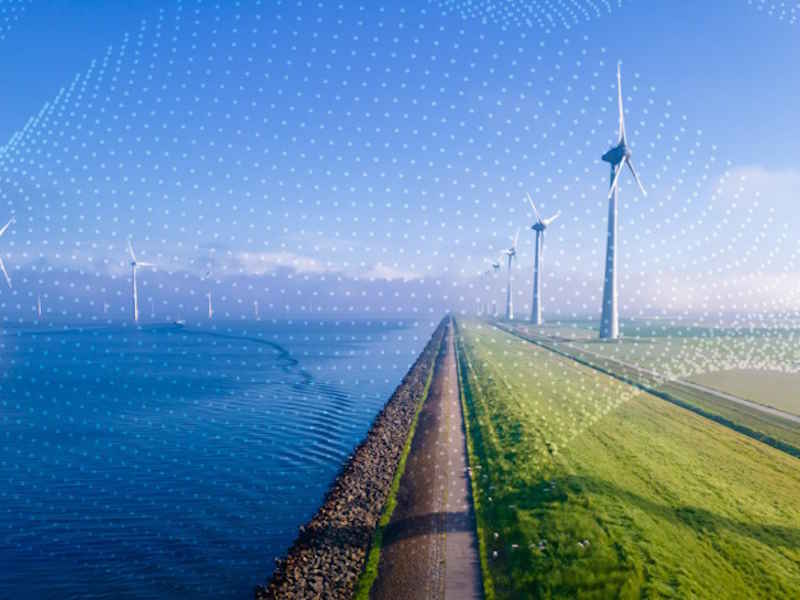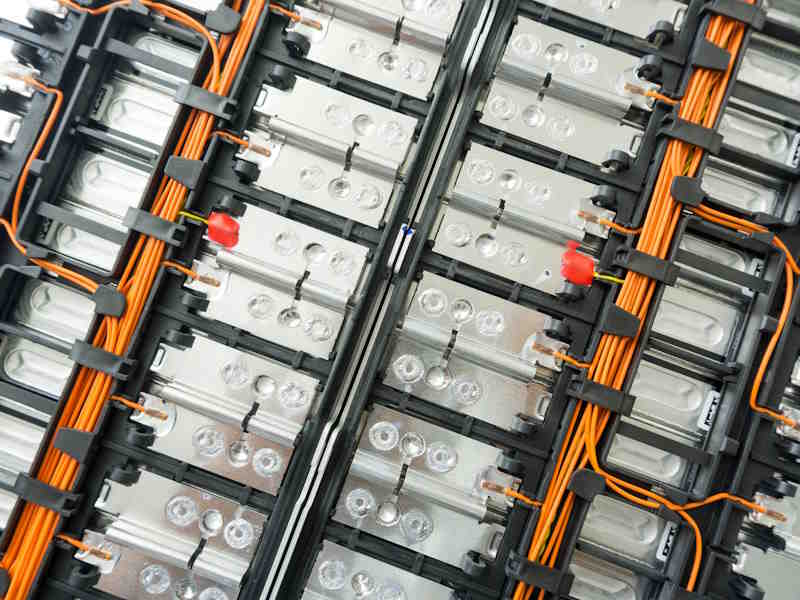Plug Into More Green Stock News
Tap into the pulse of emerging green sectors every morning. Top daily headlines from clean energy, cleantech, cannabis, and sustainable transport stocks:
SunHydrogen Shares Q4 Update on Progress Toward 2022 Milestones, Releases Video Showcasing First-Ever Prototype of its Nanoparticle-Based Green Hydrogen Technology
SANTA BARBARA, CA, Dec. 15, 2022 (GLOBE NEWSWIRE) -- SunHydrogen, Inc. (OTC: HYSR), the developer of a breakthrough technology to produce green hydrogen using sunlight and water, today provided a Q4 update on the Company's progress toward multiple planned 2022 milestones and released a new video showcasing the first-ever prototype of its nanoparticle-based green hydrogen technology. The video can be viewed on SunHydrogen’s website here.
At the start of 2022, SunHydrogen outlined four milestones for the development and demonstration of a production-quality prototype of its nanoparticle-based green hydrogen technology by the end of Q4 2022. These included:
- Successful fabrication of semiconductor units at production-quality prototype scales
- Successful integration of membranes at production-quality prototype scales
- Successful integration of catalysts at production-quality prototype scales
- Successful testing and demonstration of production-quality prototype units
Today the Company is pleased to share a summary of its Q4 progress in each of these areas.
Semiconductor units
SunHydrogen's nanoparticle technology utilizes a pairing of two semiconductor units to maximize sunlight absorption and hydrogen production efficiency. In Q2 and Q3 of 2022, the Company shared its success in fabricating one of the two proprietary nanoparticle-based semiconductor units at production-quality prototype scales. SunHydrogen also successfully demonstrated hydrogen production by pairing one of its two nanoparticle-based semiconductor units with silicon heterojunction solar cells and thin-film perovskite solar cells. However, the fabrication of the second proprietary semiconductor unit was delayed due to supply chain challenges.
In Q4 2022, SunHydrogen's Iowa scientific team at the SunHydrogen Lab and the University of Iowa identified additional alternate solutions to pair its proprietary nanoparticle-based semiconductor units at production-quality prototype scales. The pairing of these units generated photovoltages over 1.8 V, sufficiently exceeding the voltages required for water splitting. In addition, SunHydrogen's Iowa scientific team increased the photocurrent density of one of its nanoparticle-based semiconductor units by 58%. Photocurrent density is a crucial metric that is directly proportional to the rate of hydrogen production.
In parallel, SunHydrogen continues to pursue the development of vendor-independent novel deposition chemistries for growing its nanoparticle-based semiconductor units.
SunHydrogen has also entered into a Technical Service Agreement with Alliance for Sustainable Energy, LLC, manager and operating contractor of the National Renewable Energy Laboratory (NREL), to integrate its cells in SunHydrogen's model for solar water splitting. All approaches will continue to be evaluated at prototype-relevant scales.
Membrane integration
In Q3 of 2022, SunHydrogen completed its initial study on membrane integration with industrial partners Chromis Technologies and Ionomr Innovations.
During Q4 2022, the Singh Lab at the University of Michigan, led by Dr. Nirala Singh, one of the lead inventors on SunHydrogen's patent for Photoelectrosynthetically Active Heterostructures, studied the efficacy of the membrane integration process for both anion exchange membranes and cation exchange membranes. All the membranes prevented bulk liquid crossover, indicating the mechanical stability of the materials. The Singh Lab also measured the stability of the membranes in sulfuric acid and found the membranes to be stable. However, the areal resistances of the substrates after membrane integration were too high. Future work will consist of coating the new, higher-porosity substrates with membranes to decrease membrane thickness and, subsequently, membrane resistance.
Catalyst integration
The hydrogen evolution catalysts that were developed in Q3 2022 match the best-performing commercial catalysts and can be deposited on the Company's solar cell materials with low thickness to mitigate parasitic light absorption.
In Q4 2022, the Singh Lab focused on the oxygen evolution reaction (OER) electrocatalyst. The OER electrocatalyst maintained an overvoltage of <400 mV for six hours, with an initial overvoltage of 330 mV at current densities relevant for large-scale photoelectrochemical hydrogen production. Scaling up the total OER electrocatalyst area by a factor of 10 did not cause a decrease in activity. Future work will develop higher surface area electrocatalysts to lower the required current density per electrochemical surface area, which will further decrease the overvoltage and increase materials' stability.
Testing and demonstration of production-quality prototype unit
In Q3 2022, SunHydrogen designed and constructed a physical, working model of a small-scale prototype unit. This initial production-quality prototype was designed to house one hydrogen generator – integrated with catalysts, membranes, and light absorber – and to safely produce high-purity green hydrogen.
SunHydrogen's nanoparticle technology directly uses the electrical charges created by sunlight to generate hydrogen when the sun is shining. However, this prototype was also designed to be able to power the catalyst and membrane integration assembly when the sun is not shining using renewable grid electricity from wind or hydropower sources.
In Q4 2022, SunHydrogen successfully demonstrated solar hydrogen production using this prototype. Additionally, the Company is proud to share a new video featuring the prototype at work at SunHydrogen's Iowa laboratory.
"We are happy to end the quarter with testing and demonstration of this first-ever, production-quality prototype of our nanoparticle-based green hydrogen technology," said SunHydrogen's Chief Scientific Officer Dr. Syed Mubeen. "With this initial model complete, we now intend to focus on larger-scale panels that house multiple arrays of hydrogen generators to maximize hydrogen efficiency and production rates."
"We thank our shareholders and followers for the ongoing support, and we greatly look forward to continuing to share our progress with you in the new year," Dr. Mubeen concluded.
SunHydrogen's new video can be viewed by visiting the Company's website at www.SunHydrogen.com.
Note: Past materials have stated that the current prototype houses one hydrogen panel. The Company has since updated this wording to reflect that the prototype houses one hydrogen generator. A hydrogen generator refers to the entire unit structure composed of substrate, protective layer, photovoltaic layers, and oxidation/reduction catalyst, in which billions of nanoparticles split apart water at the molecular level. A hydrogen panel will house multiple arrays of such hydrogen generators. Future communications will continue to clarify this distinction between hydrogen generator and hydrogen panel.
About SunHydrogen, Inc.
SunHydrogen is developing breakthrough technologies to make, store and use green hydrogen in a market that Goldman Sachs estimates to be worth $12 trillion by 2050. Our patented SunHydrogen Panel technology, currently in development, uses sunlight and any source of water to produce low-cost green hydrogen. Similar to solar panels that produce electricity, our SunHydrogen Panels will produce green hydrogen. Our vision is to become a major technology supplier in the new hydrogen economy. By developing, acquiring and partnering with other critical technologies, we intend to enable a future of emission-free vehicles, ships, data centers, aircrafts and more. To learn more about SunHydrogen, please visit our website at www.SunHydrogen.com.
Safe Harbor Statement
Matters discussed in this press release may contain forward-looking statements. When used in this press release, the words "anticipate," "believe," "estimate," "may," "intend," "expect" and similar expressions identify such forward-looking statements. Actual results, performance or achievements could differ materially from those contemplated, expressed or implied by the forward-looking statements contained herein. Forward-looking statements are based largely on the expectations of the Company and are subject to a number of risks and uncertainties and other factors, known and unknown, including the risk factors described from time to time in the Company's reports filed with the Securities and Exchange Commission. Forward-looking statements contained herein are applicable only as of the date on which they are made, and the Company does not assume any obligation to update any forward-looking statements, except as may be required under applicable law.
Press Contact:
This email address is being protected from spambots. You need JavaScript enabled to view it.

Plug Into More Green Stock News
Tap into the pulse of emerging green sectors every morning. Top daily headlines from clean energy, cleantech, cannabis, and sustainable transport stocks:
More Green Stock News
More Green Stock News
| Last Trade: | US$0.02 |
| Daily Change: | 0.0006 2.56 |
| Daily Volume: | 1,241,870 |
| Market Cap: | US$130.560M |
October 07, 2025 September 30, 2025 June 24, 2025 May 05, 2025 | |





